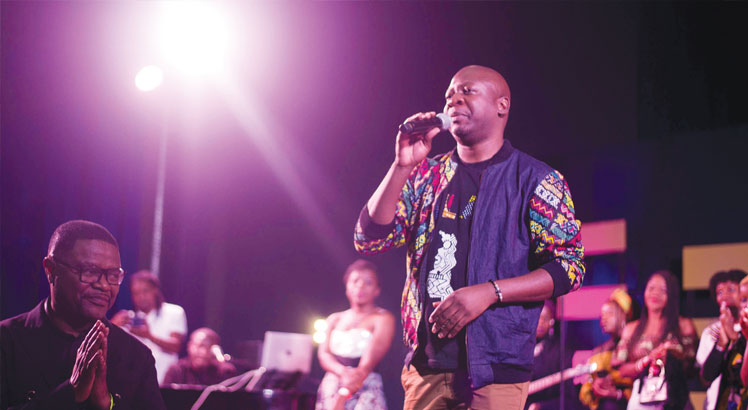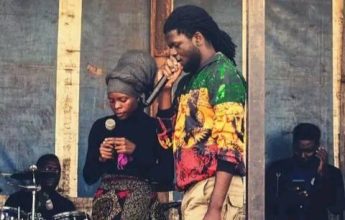The making of Malawi music
Malawi music has gone through different stages of transformation to where it is today. From the days of Malawi’s One Man Band Michael Yekha to Ndingo Brothers, Daniel Kachamba and Stonard Lungu to the days of the Banda brothers Paul and Lucius, Lawi and Faith Mussa, the art has changed.
Such history is important for generations to come and historian John Lwanda has written a book tracing the roots of Malawi music while exploring how it has continued to be shaped by many issues in Malawi.

Titled Making Music in Malawi, the book is published under Logos Open Culture, an arts and cultural heritage firm.
“I wrote it after over 20 years of research, beginning in 1987. Some of it arose from my own love and consumption of music, my having been a producer and archivist and my researches into Malawi popular culture and the public sphere,” said Lwanda in an interview.
The book talks about the music of Malawi from traditional, reggae, gospel, R ‘n’ B, kwasa kwasa, rap, jazz and classical.
“There are bits about the history of various musical styles and some biographies and histories of some of the Malawian musicians,” he said.
Examination of some musical styles such as gospel, reggae and Mbumba za Kamuzu are some of the highlights.
“For me personally it is the large amount of pictures identified, selected and used from various sources and collections,” said the author.
A good number of local artists have been featured by Lwanda in the book, while cognisant of the fact that not all can make it.
“Indeed the Ambuye Ali Liki Liki ladies came after the book had been submitted. But it has a considerable spread from Sydney Banda and Morson Phuka to some of the current favourites like Joe Kellz, Piksy, Nepman and Faith Mussa,” said the author.
Lwanda also wrote about Ernest Ikwanga, Erik Paliani, the Balaka group led by Paul and Lucius Banda, Wendy Harawa, Maria Chidzanja Nkhoma, and dozens of others.
It also highlights institutional bands like the MBC Band, Police Orchestra and the Army Strings who were training grounds for many musicians.
Contrary to the opinion of some, Lwanda’s philosophy is that there is definitely a Malawi sound.
He argued: “Not a single Malawi sound, but a Malawi Beni is different from Tanzanian, but beni all the same. There is Malawi gospel, Malawi reggae, Malawi jazz and so on.
“These sounds are of course built on a combination of traditional beats like Chioda, manganje, gulewamkulu and other music from other sources, foreign or local. Therefore, Malawi music is shaped, whatever observers and scholars may wish, by those who consume the music.”
One fact about Malawi’s music is that its growth has been at a snail’s pace compared with neighbouring countries like Tanzania.
While Lwanda acknowledges this, he argues this is a reflection of life before multiparty.
“In the past, the development of music was delayed by the lack of artistic freedom during the one party era. And then, just as musicians were beginning to flourish piracy came in and robbed musicians of some capital,” he said.
Lwanda said Malawi then saw the development of platforms that share music for free – another form of piracy by another name, which robs musicians of hard earned income by treating recorded music like a communal village song.
He said: “Then again, the lack of promoters and music venues, especially for families – no one wants to take children to beer halls, of which there are a good many.”
For Logos Open Culture, the book serves as an archive and mixtape of the sounds of Malawi, from precolonial to the postcolonial moment.
“It is a groundbreaking contribution to the historical and sociocultural significance of sounds that make and remake Malawi.
“A culmination of many years of research, Lwanda covers a staggering range of indigenous and hybrid musical genres, from sikiri to hip-hop.
His understanding of music in Malawi transcends borders and questions binaries,” said Muti Phoya of Logos.
An intersection of computational technology, and the arts and cultural heritage, Logos Open Culture’s intent is to allow discussions on Malawi to have appropriate depth, enhance access to history/heritage, and to facilitate digitalisation of memory institutions for preservation and future access of knowledge and records, according to him.
With that in mind, Phoya says Lwanda’s analysis stretches between rural and urban Malawi and extends to the diaspora.
“His expertise is extensive; he shows how indigenous song and dance met and melded with external influences; he examines the role of music as protest, both in resistance to colonialism and in the postcolonial era,” he said.
Phoya said Lwanda provides social commentary on the intersections of music, class and gender.
“He tackles the practical problems of marketing and copyright, and also explores the spiritual dimension of music as prayer and therapy,” he said.
Phoya said the book reaches into the pre-colonial past and projects into the future of music in Malawi.
“Lwanda roots his analysis in his academic training as a historian, but this text also demonstrates his personal commitment to producing and supporting Malawian music,” he said.
Making Music in Malawi is set for release end of July with a launch at The Culture Lab, at Four Seasons Gardens in Lilongwe later.
Logos Open Culture’s first publication was Malawi, A Place Apart written by Asbjorn Eidhammer, former Norwegian ambassador to Malawi and Lomathinda: Rose Chibambo Speaks.
“We are working on a poetry collection by Wokomaatani Malunga,” said Phoya about the firm’s next project.




